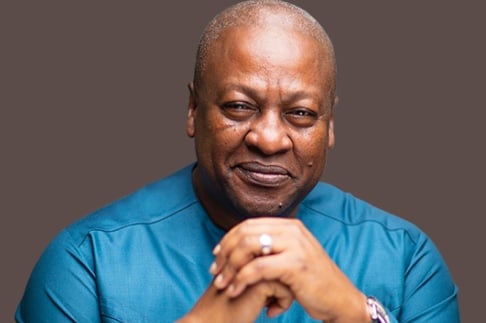The Republic of Ghana, in a move aimed at fostering national unity and streamlining its commemorative calendar, has announced a shift in the observance of Republic Day 2025. Originally falling on Tuesday, July 1st, the public holiday will now be observed on Friday, July 4th, 2025. This adjustment, facilitated by an Executive Instrument (E.I) authorized by President John Dramani Mahama, is in accordance with Section 2 of the Public Holidays and Commemorative Days Act, 2021 (Act 601). This legal framework empowers the President to make such alterations to the observance of public holidays, ensuring flexibility and the ability to align national celebrations with broader societal goals, such as promoting inclusivity and consensus. The Ministry of the Interior’s public announcement underscored the importance of recognizing Friday, July 4th as the official holiday, urging nationwide observance. This shift represents a significant development in Ghana’s approach to commemorating key historical events, emphasizing the importance of national unity and inclusive representation in its historical narrative.
The rescheduling of Republic Day follows closely on the heels of Parliament’s approval of the Public Holidays and Commemorative Days (Amendment) Bill, 2025, passed on Wednesday, June 25th. This amendment reflects a deeper reevaluation of Ghana’s national holidays and their significance in representing the country’s historical journey. One of the key changes introduced by the amendment is the removal of August 4th as Founders’ Day. This particular date had become a point of contention and division among Ghanaians, lacking the widespread consensus needed for a unifying national celebration. The amendment addresses this issue by replacing August 4th with September 21st, the birthday of Osagyefo Dr. Kwame Nkrumah, as the official Founder’s Day. This decision acknowledges Dr. Nkrumah’s pivotal role in Ghana’s independence struggle and his profound influence on the nation’s formation.
Interior Minister Mohammed Muntaka Mubarak, in presenting the amendment to Parliament, emphasized the importance of promoting national unity as the primary driver behind these changes. He highlighted the divisive nature of August 4th as Founders’ Day, explaining that the lack of national consensus surrounding the date had rendered it a source of discord, rather than a celebration of shared heritage. By reinstating September 21st as Founder’s Day, the government seeks to honour Dr. Nkrumah’s undeniable contributions to Ghana’s independence and nationhood, while simultaneously creating a commemorative day that resonates with a broader segment of the population. This move underscores the government’s commitment to fostering a sense of shared national identity and historical understanding.
The amendment not only addresses the contentious Founders’ Day issue but also solidifies the status of Republic Day, July 1st, as a full-fledged public holiday. This marks a significant recognition of the historical importance of Ghana’s transition to a republic in 1960, a pivotal moment in the nation’s journey towards self-determination and democratic governance. The formalization of Republic Day as a public holiday reinforces the significance of this historical milestone, ensuring that future generations understand and appreciate the importance of this transition in shaping modern Ghana. This move further strengthens the fabric of Ghana’s national narrative, highlighting key moments of transformation and progress.
The combined effect of rescheduling Republic Day 2025 and amending the Public Holidays and Commemorative Days Act demonstrates Ghana’s commitment to fostering a sense of unity and shared national identity. By addressing contentious issues surrounding commemorative dates and recognizing key figures in Ghana’s history, the government aims to create a more inclusive and harmonious national narrative. The shift towards recognizing September 21st as Founder’s Day, honouring Dr. Nkrumah’s pivotal role in Ghana’s independence, and the formal recognition of Republic Day, July 1st, reflect a conscious effort to celebrate moments of national significance in a way that resonates with a wider spectrum of the Ghanaian population.
In essence, these changes represent a significant step towards building a more cohesive and unified Ghana, where national holidays serve as a source of shared pride and celebration, rather than division. The government’s proactive approach to addressing the contentious issues surrounding commemorative dates, coupled with its commitment to honouring the contributions of key figures in Ghana’s history, demonstrates a forward-thinking approach to national identity and historical remembrance. By prioritizing inclusivity and consensus, Ghana aims to foster a stronger sense of national unity and purpose, ensuring that its national holidays truly reflect the shared heritage and aspirations of all its citizens.


